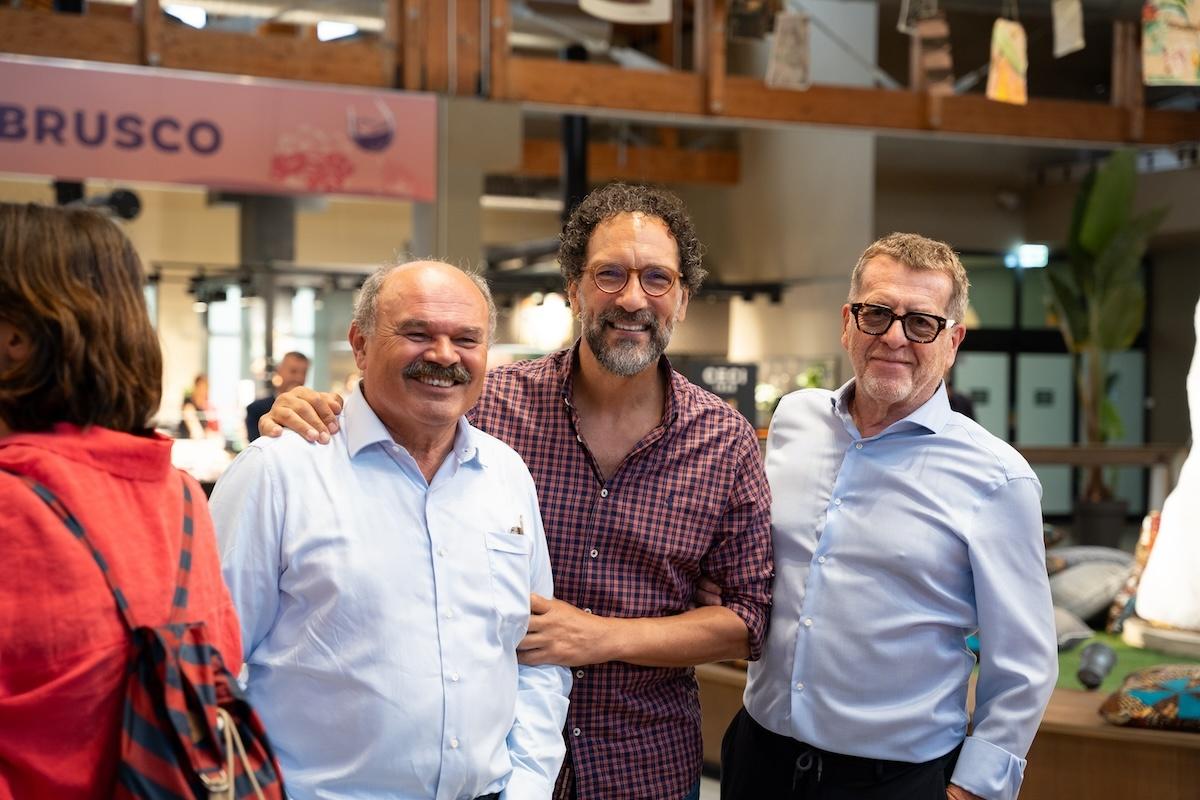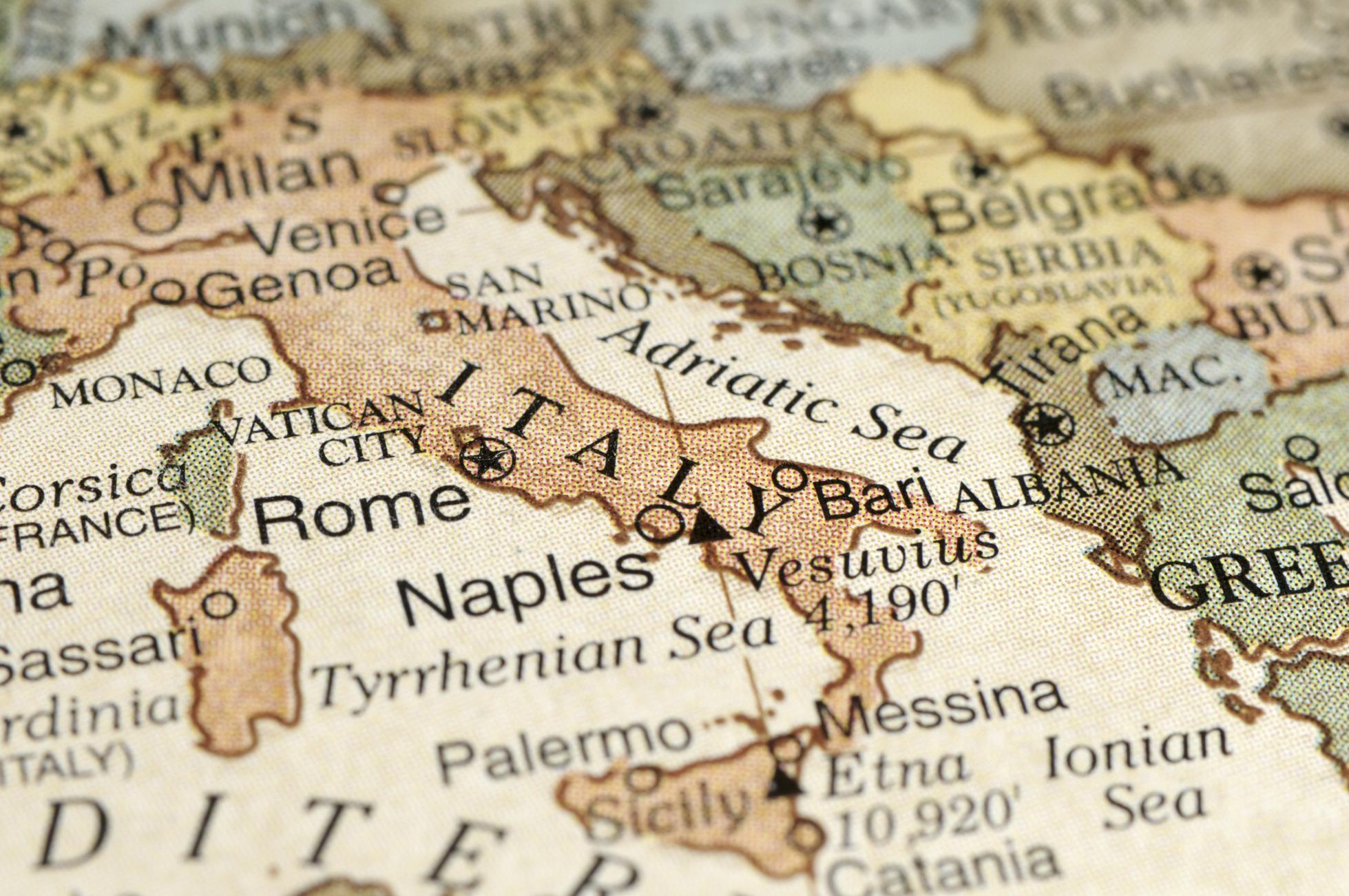Earlier this month, Bologna, the capital of the Emilia Romagna region, welcomed Grand Tour Italia, a reimagined theme park.
Geared primarily to domestic and international travelers, Grand Tour Italia offers an immersive, bird’s-eye view of the diverse culinary and cultural traditions of Italy’s 20 regions, designed to whet your appetite for further exploration.
Seeking A Silver Lining
Oscar Farinetti (L) at September 5, 2024 opening of Grand Tour Italia
Grand Tour Italia
Grand Tour Italia, the brainchild of visionary Italian businessman Oscar Farinetti, is the successor to—and occupies the same footprint as—FICO Eataly World, which debuted in 2017. Farinetti is also the founder of the highly successful Eataly chain, with 27 locations globally.
While FICO was preceded by other iconic theme parks (including Graceland, Dollywood, Legoland, and Walt Disney Parks), Farinetti’s concept of a $106 million agri-food park dedicated to food and agriculture was novel and ambitious.
Although the park drew 2.8 million visitors during its first year, attendance dropped markedly after that, and the enterprise never fully realized its goals. FICO closed in February 2024.
Turning a disappointing setback into a stepping stone for potential success, Farinetti invested an additional 15 million euros to reconceptualize the project and assumed management responsibility for its overhaul, naming his colleague Piero Bagnasco as CEO.
The project hopes to attract 1.5 million visitors in the first year with a projected revenue of 30 million euros by 2025.
What To Expect
The dedicated space for Abruzzo at Grand Tour Italia
Grand Tour Italia
The massive 50,000-square-meter park (about the size of five football fields side-by-side) is a complete departure from its predecessor.
Of course, food is a perennial mainstay of Italian tourism and remains at the core of Grand Tour Italia.
Although the term “Italian food” is commonly used worldwide, Italian cuisine is far from monolithic. Each region boasts different ingredients, recipes, and wines influenced by its distinct geography, history, and cultural heritage. Even pasta, a cornerstone of the Italian diet, comes in an estimated 350 shapes reflecting different traditions across cities, towns, and regions.
Similarly, the revitalization embraces a broader emphasis on regional biodiversity beyond food alone. Visitors will be able to discover and learn about unique historical and architectural treasures, customs and traditions, and religious and folklore celebrations associated with each region.
The journey is accessed through a route along twenty-three porticoes (portici, in Italian), arcades that serve as the entrance to each region. This design element was an apt choice, given that Bologna is known for its 25 miles of well-preserved, one-of-a-kind Medieval porticoes, designated a UNESCO World Heritage Site.
In each dedicated space, visitors will find a typical osteria (tavern) serving traditional foods and wines, a market with local food products, an educational area, and information on visiting the region. Environmental sustainability is pivotal across the project, and products are mainly sourced from organic or sustainable sources.
Three porticoes have been set aside for respected partners who are poised to help narrate the grand tour: Scuola Holden (a school of writing and storytelling from Torino), Coldiretti (an agricultural organization of 1.6 million farmers), and Slow Food (an organization by Carlo Petrini that focuses on the preservation of local food traditions).
The family-friendly destination will also feature a bookstore (stocked with the 1200 most influential books in history), an amusement park for children, an outdoor Adventure Park, and a changing daily schedule that includes music, games, cooking lessons, wine tastings, and food education workshops.
Why A Grand Tour?
Map of Italy and its borders
getty
The “Grand Tour” concept was inspired by the voyage described in Wolfgang von Goethe’s classic work, Italian Journey. Goethe’s two-year sojourn in Italy from 1786 to 1788 occurred when wealthy young men embarked on the Grand Tour of northern Europe to refine their education. In his travelogue, Goethe chronicled his life-changing journey.
Now, in one location, travelers will embark on a journey that will transport them to Italy’s iconic large cities, small towns, and quaint villages, a prelude to their own exploration of Italy’s rich history and culture. It also adds to the appeal of Bologna.
“Grand Tour Italy is more than just a tourist destination,” said founder Oscar Farinetti in a press release announcing the opening. “It is a tribute to the extraordinary diversity and cultural richness of our country, an invitation to explore, taste, and experience Italy in all its splendors.
IF YOU GO
Grand Tour Italia is open Thursday through Sunday from 11 AM to 11 PM. Entrance and parking are free.
The entrance to Grand Tour Italia is about one-half hour by car or taxi from the historical center of Bologna and about 50 minutes by bus from the Bologna train station.
Check the Grand Tour Italia website for additional information on getting there.



